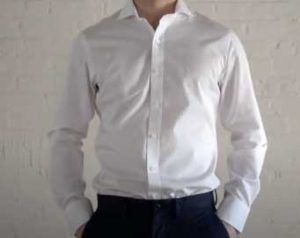When it comes to sustainable clothing brands, few names stand out quite like Prana and Patagonia. Both businesses are well-known for providing fashionable, long-lasting clothes for those who enjoy the great outdoors.
What comparisons can be drawn between these two giants, though? We’ll examine the Prana and Patagonia clothing industries in-depth in this post, weighing their advantages and disadvantages to finally assist you in choosing the right brand.
A Brief Comparison Table
| Aspect | Prana | Patagonia |
| Founded | 1992 by Beaver and Pam Theodosakis | 1973 by Yvon Chouinard |
| Main Focus | Yoga, climbing, and outdoor clothing | Climbing, outdoor, and everyday clothing |
| Sustainability | Use of organic cotton, recycled polyester | Worn Wear program, use of recycled materials |
| Inclusivity | Wide range of sizes, including plus sizes | Limited to standard sizes |
| Versatility | Clothing designed for various activities | Focus on functional, outdoorsy styles |
| Product Selection | Limited selection | Wider selection |
| Environmental Activism | Moderate involvement | Strong commitment, donates to organizations |
| Price Points | Moderate pricing | Higher pricing |
| Brand Recognition | Lesser known | Well-established, globally recognized |
The Birth of the Brands: Prana and Patagonia’s Origins
Let’s quickly review each brand’s distinct history before getting into the specifics of its offers. This will help us comprehend their founding principles and history better.
- Prana’s Humble Beginnings
Prana was founded in 1992 by Beaver and Pam Theodosakis in Carlsbad, California. The couple saw a gap in the market for clothing that was both functional and sustainable, and so they began designing and producing clothes for yoga, climbing, and outdoor enthusiasts.
They were determined to create a company that prioritized sustainability and fair labor practices, and thus, Prana was born.
- Patagonia’s Adventurous Roots
Patagonia’s story begins in 1973 when Yvon Chouinard, an accomplished rock climber, and environmentalist, decided to launch a clothing company dedicated to crafting gear for climbers.
Like Prana, Patagonia’s ethos was built around sustainability, ethical manufacturing, and a love for the great outdoors. Today, Patagonia has expanded beyond climbing apparel to include clothing for various outdoor activities, as well as everyday wear.
Also Read: Differences Between Orvis Heritage And Barbour Field Coat.
Pros: What Sets Prana and Patagonia Apart
Let’s examine each brand’s advantages now that we are more familiar with their histories.
- Prana’s Emphasis on Sustainable Materials

One of Prana’s biggest strengths is its commitment to using sustainable materials in its products.
This means that the company uses materials like organic cotton, recycled polyester, and responsibly sourced down in its clothing.
By choosing these eco-friendly options, Prana reduces its environmental impact and supports sustainable farming practices.
- Patagonia’s Worn Wear Program
Patagonia’s Worn Wear program is an initiative that sets the brand apart from its competitors.
This program encourages customers to repair, reuse, and recycle their Patagonia gear to extend its life and reduce the need for new products.
As a result, Patagonia reduces waste and promotes a more sustainable consumer culture.
- Prana’s Inclusivity and Versatility
All shapes, sizes, and levels of fitness may wear Prana clothing since it is made to be inclusive and adaptable. The brand offer clothing for yoga, hiking, and other hobbies in a variety of sizes, and design including plus sizes.
- Patagonia’s Environmental Activism
Patagonia has been known for a long for its commitment to environmental activism. The company gives a part of its income to local environmental groups, helps protect public places, and uses its position to push for changes in environmental policy changes.
This dedication to activism sets Patagonia apart from other brands and demonstrates its commitment to sustainability beyond just its products.
Cons: Where Prana and Patagonia Fall Short
Of course, no brand is perfect, and both Prana and Patagonia have their shortcomings.
- Prana’s Limited Selection
While Prana’s focus on inclusivity and versatility is commendable, it does come at the expense of a more limited selection.
Prana’s product offerings are not as extensive as Patagonia’s, which means customers may have a harder time finding the perfect piece for their wardrobe or specific outdoor activity.
- Patagonia’s Higher Price Points

Patagonia’s commitment to quality, sustainability, and ethical manufacturing practices is reflected in its prices, which can be a con for some consumers.
The brand is less affordable for consumers on a tight budget since its goods are often more costly than those of other outdoor wear manufacturers.
- Prana’s Lesser Known Name
Despite its commitment to sustainability and quality, Prana has not quite reached the same level of brand recognition as Patagonia. This may make it a less attractive option for those who place importance on brand name and reputation.
- Patagonia’s Limited Style Options
While Patagonia offers a wider selection of products than Prana, it tends to focus on more functional, outdoorsy styles. This implies that clients seeking more trendy or urban designs would have a tougher difficulty finding anything that appeals to them among Patagonia’s selection.
Also Read: Differences Between Darn Tough And Cabot & Sons Socks.
Conclusion: Which One Is Right for You, Then?
In the end, the decision between Prana and Patagonia clothing brands comes down to your personal preferences and priorities. If you’re in search of a brand that is more extensive, and diverse and puts emphasis on sustainable materials, Prana could be exactly what you need.
Conversely, if your priority lies with an established company devoted to ecological causes as well as providing a broad range of items and is willing to spend more money on quality clothing, then Patagonia should be given serious consideration.
Both Prana and Patagonia have their own benefits; however, what unites them is their dedication to sustainability principles along with ethical production practices coupled with a passion for the outdoors.
Whichever label you decide on ultimately depends upon personal preference; fortunately no matter which one it may be both companies are striving towards making this world better through positive initiatives.
Don’t forget – the best way to determine which brand will suit you is by doing some research into their merchandise as well as trying out different pieces they offer!
So, why not head to your nearest Prana or Patagonia store and see for yourself? You might just discover a new favorite clothing brand that aligns with your values and elevates your outdoor adventures.




